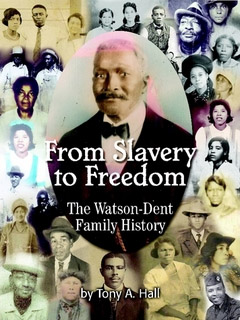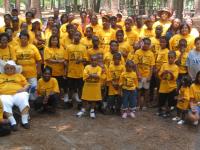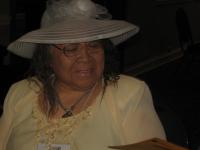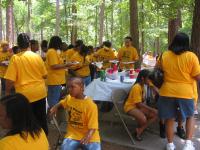
Our History
Chapter One Wilcox County, Georgia
Wilcox County Georgia is the key location in tracing our family history and lost ancestors back in time. It is here that most of our early family ancestors lived and were brought and placed in slavery. Through the evidence is clear that some of the earliest known slaves in our family lived in Kentucky and Virginia eventually they were moved south to Georgia and particularly to Wilcox Country, Georgia.
Wilcox County is located in the Southwest corner of Georgia. The Okmulgee River runs on the east side of the county and is the principle river for the area. In the early years of Wilcox County the principle agriculture crops produced were cotton, sugar cane, turpentine, corn, peanuts, watermelons and others.
Because of the tedious and abundant work needed to maintain the crops as well as the thriving economy, slaves were among the chief labor force used in Wilcox County to maintain the economy. It was for these reasons that thousands of slaves were brought to Georgia. Among these slaves were our relatives. Many of our relatives took their master’s name such as “Fuller,” “Ball,” and “Watson.” Though the Dents name of our family relatives seem to have been located mainly in Bibb County (Macon), some relatives such as my great grandfather Green Dent has significant ties in Wilcox County. It was here he married Delia Ball on April 9, 1890.
Wilcox County actually was created in 1858 just three years before the Civil War started (1861) yet it did play a significant role in the Civil War. In fact, Jefferson Davis The President of the Confederacy who led the rebellion spent his last days of the War in Wilcox County. Confederate President Jefferson Davis camped on May 8, 1865 at Abbeville during his flight through Wilcox County. Two days later he was capture on the outskirts of Wilcox County by Union Forces in Irwinville. It was this capture that ended what is known as The Confederacy. Even though the county was only three years old when the war started, the citizens of Wilcox County was quick to join in the rebellion and take up arms against Lincoln’s Presidency and the Federal Union States. In fact, one of the most respected and a honored citizens of Wilcox County was Samuel D. Fuller. Samuel D. Fuller is also believed to be the owner of my great, great grandmother and great, great grandfather, Amanda and Willis Fuller. Amanda was born in 1825 and Willis her husband was born in 1810. By the time the war started he owned about 200 slaves and 10,000 acres of land and yet he left all of this and enlisted in the Confederate Army where he became captain of his regiment. Captain Fuller is a celebrated Confederate solider. After the war he became a senator in the state senate representing Wilcox County. Though Wilcox County was in its infancy when the war started the land was already well inhabited. The land we know (or created from) Dooly, Irwin and know today as Wilcox County was once known as Irwin, Dooly and Pulaski County prior to 1858. This is important to know when tracing our family history because some family members’ records will be found in these counties instead of Wilcox County because Wilcox County did not exist prior to 1858. Today, Wilcox County is bordered by Pulaski County on the North, Dodge County on the east, Telfair County also on the east, Ben Hill on the South, Turner on the Southwest, Crisp County on the west, and Dooly County on the Northwest. Wilcox County was named after General Mark Wilcox who fought in the Indian Wars between 1725 and 1843. Wilcox is also one of the original creators of the Georgia Supreme Court. Today Wilcox County incorporated towns includes the towns of Abbeville, Pineview, Pitts, and Rochelle. The un-incorporated towns are Seville and Owensboro. Rochelle is the largest of the towns. Abbeville is the county seat where many of our family ancestor records can be located in the Wilcox County Courthouse. Records such as marriage, land ownership, wills, newspaper clipping, and other records can be found here as well. In addition, some records are also found in the Irwin County Courthouse.
Life as a Slave in Wilcox County, and Southwest Georgia
Christine Dent Denson is the oldest living child of Sampson Dent, the brother of Green Dent who is my great grandfather. During an interview conducted with Christine Dent Denson (born 1920) she often talked about stories her uncle Green would tell her and the family. She said he often talked about how hard slavery was. She said one day they were arguing over an issue around the dinner table when her uncle Green interrupted and said “children I have often eaten from troughs and so let’s be thankful for food and go ahead and eat.” She then preceded to tell me about how he remembered going to bed one night hungry and vowing never to be embarrassed to eat from a trough again. The story goes that one day some girls came around when it was time to eat. The food had been placed in a trough so young Green was too embarrassed to eat in front of the girls so he pretended he was not hungry. During the night his hunger pains were so unbearable he vowed he would never be too embarrassed to eat from a trough again. So he did many times afterwards. Though it is not conclusively clear where Green Dent spent his slave years, It is possible that he spent some in Wilcox County since some records show he was living in Bibb County in his early twenties, after the slaves were set free. By 1880 he was living in Wilcox County and on May 2, 1890 He married Delia Ball. It is believed by most of our older family members that Green Dent was a 104 or 105 years old when he died in 1952. However, his death certificate indicates only ninety years of age from 1862-1952. Nevertheless, suspiciously on the death certificate is written in parenthesis 104-105. This could imply the person reporting the death believed this to be the case also, However it could not be proven conclusively to the officials. When I asked the custodian of vital records at the Ben Hill Vital Records Department about the 104-105 written in parenthesis on his death certificate she could not explain what it meant also. It is commonly understood that many slaves did not know there real age since slaves were not allowed to be taught to read or write. Often they where told by their slave masters their age, however the slave master could manipulate the age when wanting to get a better price for a slave. The age and condition of the slave were major factors in determining the price of a slave. When freedom came to the slaves in 1865, many formers slaves were left not clear about there real age, so they would guess or choose their most likely age.
Since Wilcox County was not created until 1857, it is important that the reader understand that what is now Wilcox County today was originally part of Irwin County that was created in 1822, and it was out of Irwin County that Wilcox County was created. This is important when researching courthouse records in order to find records of past slaves relatives and free ancestors. Some records are found in Irwin County instead of Wilcox County. In addition to this, some records are found in Bibb County since our branch of Dent relatives first appeared in Macon. Even today many of our Dent relatives still live there. In order to get a better understanding of slavery in Wilcox County it is appropriate that we hear from a slave who lived in Wilcox County. Between the years of 1936 and 1938, over 2,300 former slaves were interviewed in which they gave first hand accounts of their experience as a slave. The project was conducted by the Federal Government under a project known as “The Federal Project of The Works Project Administration.” Among those slaves who were interviewed was a slave from Wilcox County by the name Joe McCormick. Though Joe is not a family relative, he does gives some insight into what life was like as a slave in Wilcox County and southwest Georgia. Joe was owned by a Mr. Mitchell. The master’s daughter married a man by the name of McCormick and he was given to her. Joe’s mother was born in Norfolk, Virginia and was brought to Pulaski County by the “Speculators” and sold.
“Farming was the only occupation the master knew. The slaves lived in dread of his temper, as he was often unkind to them. Joe said that he was unlike most of the other slave masters as he was afraid the slaves might some day over power him and for this reason, he kept them under rigid subjection. The plantation, covering one thousand area of land, yield such crop as cotton, corn, peas, cane and peanuts, so far as Joe knew, the crops were not sold, but used by the master for his family and slaves. Vienna was the closet town to the plantation. The master generally travel there, making the trip to and from in one day. Joe’s mother spun the thread and weaved the cloth for the family and slaves. Joe first began work at the age of 10 years old. Joe called himself a “wait man” for he did chores about the house for the master’s daughter. Later when he grew older, he worked in the field. There were slaves who did the cooking and washing for the family, but the majority of them worked in the field. There were between sixty and seventy- five slaves on the plantation. There was a whipping master, whose duty was to whip all slaves that the master sent to him. Joe and his mother were often whipped. There were no frolics or celebration on the plantation according to Joe. They were required to work everyday except Sunday. On that day they were allowed to go to the “bush arbor” and hear a sermon preached by a white pastor. In his talk, the pastor always cautioned them to be good Negroes and mind their master. If a slave happens to get sick, the doctor would often bleed him. Blue Mass (pills) was a favorite remedy. The master named the babies, but they were never christened. All the clothes were made by the color women. There was no machine, so all the sewing was done by hand. The dresses were made full from “bottom to top.” The pants, as Joe expressed it, “were made body and all” which meant they had no suspenders. The slaves in the plantation knew very little about the war. The master did not mention the War before his slaves. Joe said he had hid in the bushes on the plantation so that he would (not) be found to enlist in the army. Soon after Joe left his master, Joe went to Wilcox County, to work. Mr. Hamilton moved to Hawkinsville, and Joe would often go there to trade and would see him, but never worked for him again.
Though Joe spent a great deal of his life in neighboring Dooley County (now part of Wilcox County) he gives an account of what life was like in Wilcox County and the surrounding southwest Georgia area.
This has been an excerpt from our family history book, "From Slavery to Freedom" by Tony A. Hall. To read more you can order the book here. |
Photo Gallery Video Gallery Family News and Updates Download and Upload Page Family Group Sheet Upload Form Sign-in and Post a message Contact-us |
Photo Gallery Video Gallery Family News and Updates Download and Upload Page Memorial Page Sign-in and Post a message Contact-us Home-2



